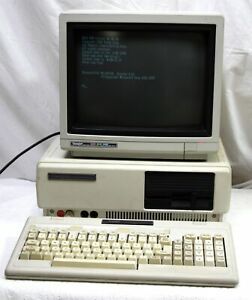
I'm always learning. Always.
I've always been curious about coding, even before I knew it was called that. When I became aware of the first personal computers that weren't just game consoles, I wanted to be able to make it do what I wanted. But I didn't know how to write BASIC, which was what people did in those days, and I didn't have time to spend learning it.
I normally need a reason to learn a thing.
It took all I could do to learn Microsoft Word for school, and DOS batch files and FidoNet burned up the rest of my leisure computing time. Then the Internet showed up, and I became aware of Unix, then Linux.
I beat my head against the hard brick wall of Linux several times. Each time I'd make some progress toward a useful computing experience, but then something would go sideways and I'd reformat the hard drive and reload MS-DOS and/or Windows again. There was no one to tutor me. Google didn't exist yet.
After several iterations of this cycle, I had finally absorbed enough to actually use Linux as a genuine computing solution. When Ubuntu hit the streets, my Linux life fell into an easy, sustainable pace.
But I still couldn't code. I tried Java several times, but the resources I could find were confusing, tossing strange terminology around as if I was supposed to know it already. It was frustrating.
Decades after my first PC, I found Codecademy on the web. I started a Java course twice and failed. After enough time had passed for the stinging to subside, I went back, only this time I decided to try Python.
Python clicked. For some reason I was able to understand the syntax and the concepts well enough to get all the way to the end of the course.
#!/usr/bin/env python3
myvariable = input('What do you want to say? ')
print(myvariable)
Three lines and something happens!
I made it! I did it! Wow! Now what? If I don't use it, I'll lose it.
Enter the Raspberry Pi. Running a modified Debian Linux called Raspbian, it is a full-blown computer the size of a deck of cards. And with its 40 GPIO pins, you can take input from all sorts of things, and you can control all sorts of things.
It started with the garage door. I probably violated most rules of good Python coding, but it worked. And now six years later it's still working, day in and day out. It's hard to argue with that kind of success.
I kept doing more, googling more, building more. I've come a long way, and have had a blast doing it. You can too. Never give up!
